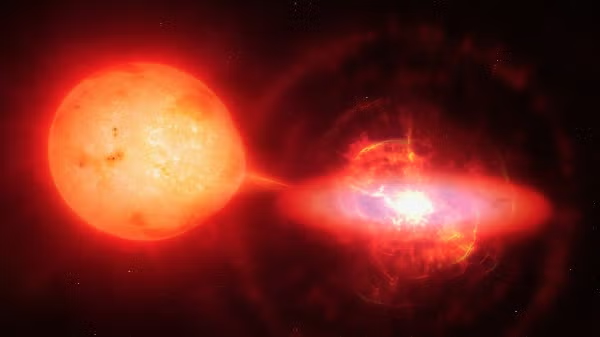Unique program gives online students research experience with Nobel Prize-winning professor

Nobel Prize winner and School of Life Sciences Professor Leland Hartwell. Courtesy photo
Ever since he was a child, Leland Hartwell has always wanted to “figure things out.” That desire to understand and explore the unknown has served him well.
Hartwell, a professor in the School of Life Sciences at Arizona State University, has enjoyed an expansive academic career that includes a Nobel Prize win, and his work has left a legacy in multiple research areas — from yeast cells to cancer therapies.
Now, Hartwell is continuing to explore new horizons as he leads students in a unique research experience about visual cognition through the Online Undergraduate Research Scholars (OURS) program at ASU.
The OURS program gives students the opportunity to gain critical research experience and mentorship from professors of Hartwell's caliber from anywhere in the world.
“It’s been an emphasis of mine to create authentic research experiences for students online,” Hartwell said. “Visual cognition is something that is not understood or well researched. It also can be done using a computer, primarily online. There’s no need for a brick-and-mortar place to do meaningful research.”
Though he was hesitant when first presented with the opportunity to teach a course online, "because I felt I needed that weekly synchronous meeting," Hartwell's innate curiosity won over and he accepted the challenge.
Ara Austin, senior director of online engagement and strategic initiatives at The College, is glad he did.
"In every conversation that I have had with Lee, he always puts the students and their interests at the center of them all,” Austin said. “He wants the students to experience science in a meaningful way by asking questions, diving into data and discussing ideas with others, which are activities often missing from a traditional lecture course. It has been an honor to work with Lee throughout this process, and he has shown me that there is always something new to learn and try."
Hartwell’s course, LIA 294: Research on Cognition and Stories, is available to fully online students at The College of Liberal Arts and Sciences and students in Barrett, The Honors College. Students in the course construct experiments that explore the creation and comprehension of stories.
The fully remote class uses software technology to create experiments using visuals, including graphics and videos.
In one of the first experiments, Hartwell asks his students to watch a short video and gives them 20 images. He tells them to use ten of the images to retell the story.
“We connect events casually to create stories,” Hartwell explained, “and that’s not only a selection of which things we pay attention to and which we relate to one another, but relationships between things — and that’s the foundation of science.”
Students in the course also explore how different interpretations of language, storytelling and memory can shape and redefine a narrative.
Beyond the curriculum, students are gaining valuable skills from Hartwell himself on research, specifically inquiry and curiosity.
“He’s somebody who is a lifelong learner. I was struck by how much he sees himself as having a youthful curiosity about the world,” said Grace Pavelka, an anthropology student from North Carolina. “He’s been so intent in saying he’s also learning from us. He’s very genuine, open, accessible and encouraging toward us.”
Hartwell’s work with online undergraduate students is evidence of his never-ending passion for exploring the world’s unanswered questions.
“I don’t like thinking about legacy,” he said. “What I think about is experience. I want the experience of exploring the unknown, and I want to do that until the lights go out. And I’m very thankful that ASU allows me to work with students and have that experience.”
More Science and technology

A spectacular celestial event: Nova explosion in Northern Crown constellation expected within 18 months
Within the next year to 18 months, stargazers around the world will witness a dazzling celestial event as a “new” star appears in the constellation Corona Borealis, also known as the Northern Crown.…

ASU researcher points to fingerprints as a new way to detect drug use
Collecting urine samples, blood or hair are currently the most common ways to detect drug use, but Arizona State University researcher Min Jang may have discovered something better.Fingerprints…

Learn about the secrets of forensic science straight from the experts
Over the next week, true crime enthusiasts will have a rare opportunity to discover the secrets of forensic science as experts share techniques for tracking down criminals.Behind Crime Scene…

